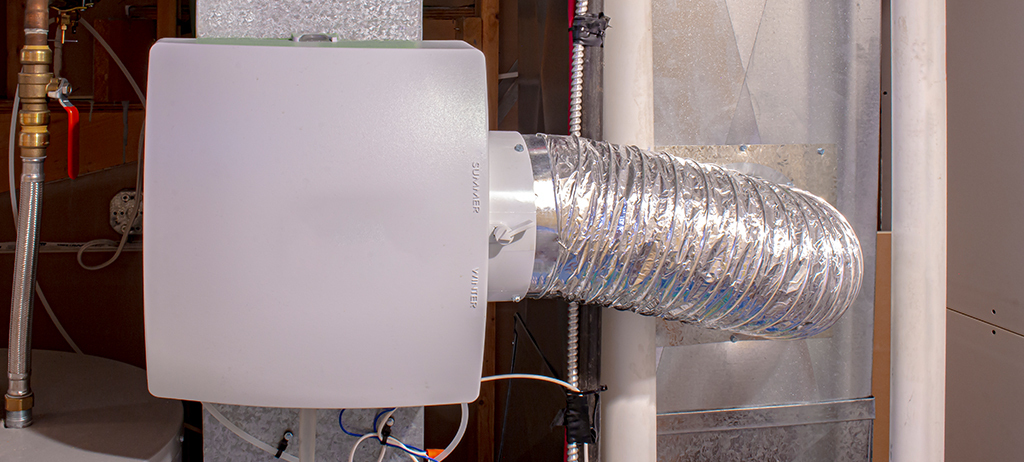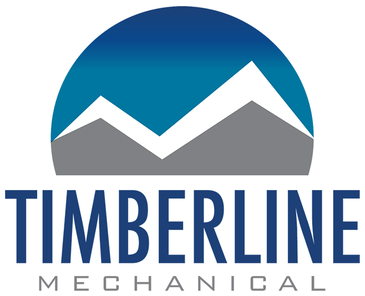As defined by YourDictionary.com, humidity is “the amount of wetness or water vapor in the air.” There are more technical definitions to be found, but that one sums it up fairly well. Humidity is a feeling you’re probably familiar with, especially if you’ve traveled to just about anywhere east of the Mississippi in the summertime.

The humidity level in your home or business is something you want to be in control of. When there isn’t enough humidity in the air, it can result in dry skin, cracked lips, a greater likelihood of developing nosebleeds, etc. However, when an environment is overly humid, the air can feel damp and uncomfortable, surfaces may feel wet, and it's much easier for mold to grow.
Benefits of the Right Humidity Level
As Healthline explains, the right amount of humidity can help relieve many conditions affecting the skin and membranes in the body, including:
- Dry skin
- Sinus congestion/headache
- Dry throat
- Nose irritation
- Bloody noses
- Irritated vocal cords
- Dry cough
- Cracked lips
And, as long as you keep the humidity at an appropriate level in your home or business, you won’t be encouraging the growth of things like mold, mildew, harmful bacteria and dust mites.
Other Issues Associated with Low Humidity
In addition to how low humidity affects the body, it also affects materials in a home or business. For example, lack of humidity can lead to static electricity build-up and uncomfortable shocks when occupants touch metal items.
Low humidity can also affect products made from wood such as furniture and wood flooring. It can cause them to shrink and crack. With wood floors, this can result in unsightly gaps between boards.
Maintaining a Comfortable Humidity Level
In Colorado, overly high humidity typically isn’t a problem. Instead, in our “high-desert” climate, it’s much more likely that a business owner or homeowner will want to add moisture to the air in their indoor spaces. This can be done in multiple ways, including having free-standing humidifiers in the room or rooms where you want more moisture in the air.
An excellent approach, in many instances, is to use a humidifier connected to your HVAC (heating, ventilation, air conditioning) system. Called a whole-house humidifier or furnace humidifier, this type of unit moistens the air that is being moved through ductwork to heat the home. This marriage of heat and moisture is ideal since winter air tends to be the driest.
3 Types of Whole-House Humidifiers
There are three types of whole-house humidifiers:
- Bypass humidifiers
- Flow-through humidifiers
- Steam humidifiers
Bypass humidifiers have what’s called a water panel, and they rely on the movement of air from the furnace’s blower flowing over that panel to moisturize the air. They don’t have a fan of their own, and consequently are only raising the humidity when the furnace blower is on. This makes a bypass humidifier more energy efficient than some other types, but the trade-off is that this type of unit is less effective than others.
Flow-through humidifiers are similar, in that they put moisture into the air using a water panel. However, they have their own fan, so they can humidify the air even when the furnace isn’t operating.
Steam humidifiers add moisture to the air using steam from boiling water and airflow produced by the furnace. While they are very effective at raising the humidity level, they are also more expensive to purchase and operate than the other two types.
Maintaining the Desired Humidity Level in a Home or Business
Whole-house humidifiers have what’s called a humidistat. Like the thermostat on your heating system, this input device lets you select your desired humidity level and have the humidifier automatically maintain that level.
Every person’s desire for (or tolerance of) humidity is different, of course. But most people find a level of 30-40% to be ideal. Another benefit of maintaining a reasonably humid environment is that your furnace may not have to work as hard to keep you warm. The presence of moisture in the air can make your home or business feel warmer than it does at the same temperature with low humidity.
Do I Need a Whole-House Humidifier?
Customers will sometimes ask us whether we think they need a whole-house humidifier for their HVAC system. There’s no standard answer to that question since it comes down to things like the presence or absence of health issues, a person’s or family’s tolerance for humidity, etc. Ultimately, if you find Colorado’s low humidity problematic for any reason, you should consider a whole-house humidifier.
A good strategy can be to purchase or borrow a room humidifier first and use it consistently in one room in your home for a while. You can also buy an indoor humidity monitor so that you can check the humidity level in that room periodically.
If the higher humidity level in that room helps reduce any symptoms caused by dry air that you’re experiencing, and you don’t notice any problems created by the humidity level, it may be a good idea to invest in a whole-house humidifier. If, on the other hand, you don’t see improvement in symptoms and/or you notice mold growth or other undesirable consequences, perhaps a whole-house unit is not for you.
Get Insights From the Experts
If you have questions about the pros and cons of whole-house humidifiers or are interested in our observations regarding customers who have had us install units, we’re happy to talk with you. We would also encourage you to talk with other business owners or homeowners who have HVAC humidifiers (and who don’t have them) and see what they have to say about their workplace or home environment.
While adding a humidifier to your HVAC system isn’t particularly expensive, you don’t want to pay to have that done only to find that you don’t like the higher humidity level and rarely or never use the new capability.
Contact Timberline Mechanical today to learn about whole-house humidifiers, as well as all the other HVAC-related services we provide, including new system design and installation, preventative maintenance, and more.
About Timberline Mechanical
Timberline Mechanical is a Boulder HVAC Contractor located in Boulder, CO, and serving the Colorado Front Range, including Broomfield, Longmont, Louisville, Lafayette, Superior and Erie. We are dedicated to providing the intelligent solutions necessary to keep your Boulder Commercial HVAC equipment running efficiently and at its peak performance. Whether we are completing a service call request, providing Commercial HVAC Preventive Maintenance or conducting Special Projects work, we offer intelligent commercial HVAC solutions to ensure that your business needs are met. You can focus on your business while we make sure your commercial HVAC equipment is running smoothly. https://www.timberlinemechanical.com/
Timberline Mechanical Media Contact
John Kuepper
Owner
+1 303-258-3589
Release ID: 107630

